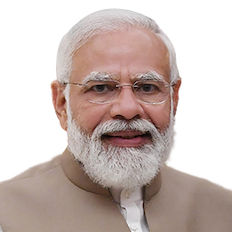
The world's hottest hotspot for hotel rates is India. In 2023, negotiated corporate rates rose 28 percent to 30 percent from 2022 levels, according to Tripbam. More increases can be expected next year. Aside from hyperinflation-afflicted Buenos Aires, the cities with the world's projected highest year-over-year rate increases in 2024, according to the American Express Global Business Travel Hotel Monitor forecast, are Mumbai and Chennai at 15 percent and 14.6 percent, respectively.
Trade, geopolitics and demographics lie behind these extraordinary increases. In a November BTN Europe report, Tripbam head of business development for Europe Juliette Jackman attributed the rate jumps to "a lot of business moving from China to India."
In part this is because China reopened slower than anywhere else after the Covid-19 pandemic. But some Western companies also are shifting their supply chains to India as their governments' relationships with China deteriorate. In spite of his own questionable record on ethnic relations and civil rights, Western countries see an India governed, since 2014, by Narendra Modi as a safer bet.
Modi said as much while addressing a joint session of the U.S. Congress in June. "When India and the U.S. work together on semiconductors and critical minerals, it helps the world in making supply chains more diverse, resilient and reliable," he remarked.
Modi signed trade agreements with President Joe Biden during his U.S. visit. Meanwhile, new inward investments have been promised or started by Western companies including Amazon, Apple and Mercedes.
The consequent increase in international business visitors means more competition for hotel room availability with domestic travelers. India's middle class, measured in hundreds of millions of citizens, is ever more mobile. According to a Booking.com and McKinsey report, Indian citizens took 1.7 billion leisure trips in 2022, of which only 1 percent were abroad. The same report forecasts leisure trips will soar to 5 billion by 2030, yet the proportion that are domestic will remain at 99 percent.
Those figures suggest even higher demand and therefore even higher rates in Indian hotels in the years ahead, especially as India is projected to become the world's third-largest economy by 2027, by forecasters including JPMorgan and Morgan Stanley. At least transport supply is expanding, with a massive airport, road, rail and port building program underway. Small wonder that in June 2023 Airbus announced a firm order from Indian airline IndiGo for 500 A320 family aircraft, which the manufacturer proclaimed the single largest purchase agreement in the history of commercial aviation.